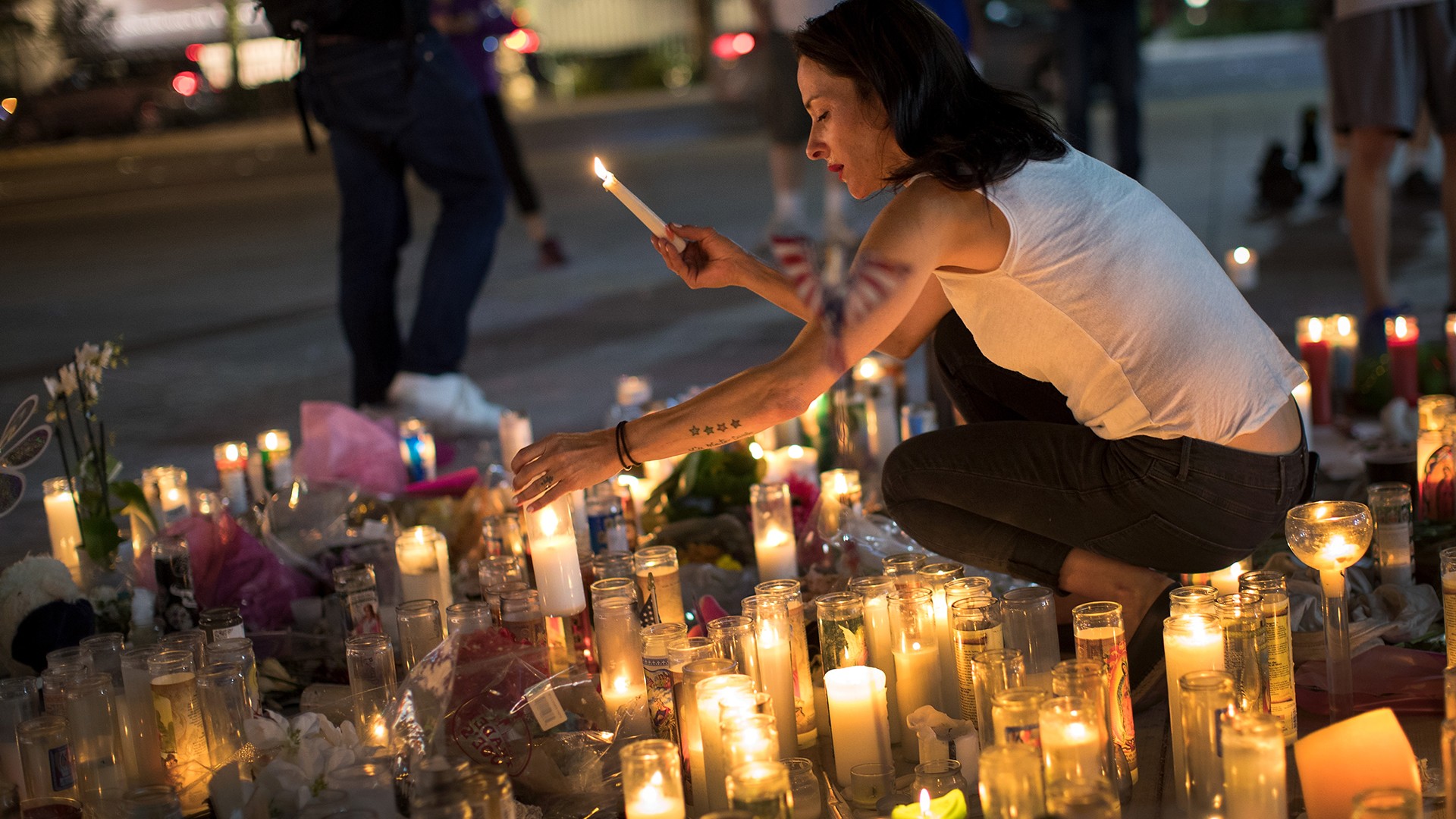He quoted Scripture; ordered flags lowered to half-staff at public buildings; and pledged to work on improving the nation’s mental health system. “I have heard your prayers and seen your tears; I will heal you,” President Trump said, citing Bible verse, after the South Florida school shooting that left 17 dead and a dozen wounded.One thing Trump didn’t mention once in his address to the nation: a word about guns. (He did reference "gunfire," however, in describing what happened Wednesday at Marjory Stoneman Douglas High School in Parkland, Florida.)And that doesn’t appear to be a mistake. Trump and fellow Republicans in Congress have made clear over the past day that they do not believe guns are the problem and have no intention of enacting gun control laws in this Congress.Read more: “I don’t want your condolences”: Stoneman Douglas students demand action from Trump and Congress“I think we need to pray, and our hearts go out to these victims,” said House Speaker Paul Ryan in a radio interview Thursday. “And I think, as public policymakers, we don’t just knee-jerk before we even have all the facts and the data."And Florida Sen. Marco Rubio told Fox News Wednesday evening: “I think it's important to know all of that before you jump to conclusions that there's some law that we could have passed that could have prevented it."In fact, the Republican-led House of Representatives passed a bill that significantly stripped away gun control this past December, The Concealed Carry Reciprocity Act. The National Rifle Association hailed the bill’s passage as “the culmination of a 30-year movement recognizing the right of all law-abiding Americans to defend themselves, and their loved ones, including when they cross state lines.”That bill is currently waiting in the Senate. It is unlikely to pass, but Democrats up for re-election this year in deeply conservative states with a culture of gun ownership, such as Missouri, Montana, and West Virginia, may vote for the bill and may make the vote close.Read more: The FBI knew Nikolas Cruz wanted to be a school shooter since 2017Even when some Republicans agree on very light forms of gun control, it has only been talk. Following the massacre in Las Vegas last October that left 58 people dead and hundreds wounded, several Republican leaders agreed that the “bump stocks” that allowed the shooter to fire his weapon like a machine gun ought to be banned. Bipartisan legislation was introduced but has not come up for a vote and is unlikely to. The Concealed Carry Reciprocity Act included a provision that would commission a study of the issue.Another bipartisan consensus formed on beefing up the country’s background check system last November after a shooting at a Texas Baptist church left 26 dead. The second-ranking Republican in the Senate, John Cornyn of Texas, proposed legislation with Democratic Sen. Chris Murphy of Connecticut to fill in the holes in the National Criminal Instant Background Check (NICS) system. The gunman shouldn’t have been able to purchase a gun if the system had worked properly.But that legislation is also stalled, and there are no prospects for passage. Conservative Republicans in the House stuffed it into the Concealed Carry Reciprocity Act knowing full well that most Democrats most certainly won't support it.And even as Republicans focus on—as Trump did again Thursday—the mental health system as the solution to preventing these mass shootings in the future, they have voted to expand the gun rights for those who have a history of mental health problems.Read more: Everything we know about school shooting suspect Nikolas CruzIn February of 2017, Congress passed and Trump signed a bill to overturn an Obama-era regulation that, if it had been fully implemented, would have added about 75,000 people receiving Social Security money for mental illness to the NICS database.As Trump said in November after the Texas church shooting: “We have a lot of mental health problems in our country, as do other countries. But this isn’t a guns situation.” Cover image: U.S. President Donald Trump speaks during a press conference about the Parkland, Florida high school shooting in the Diplomatic Room of the White House in Washington, D.C., U.S., on Thursday, Feb. 15, 2018. (Andrew Harrer/Bloomberg via Getty Images)
Cover image: U.S. President Donald Trump speaks during a press conference about the Parkland, Florida high school shooting in the Diplomatic Room of the White House in Washington, D.C., U.S., on Thursday, Feb. 15, 2018. (Andrew Harrer/Bloomberg via Getty Images)
Advertisement
Advertisement
Advertisement
